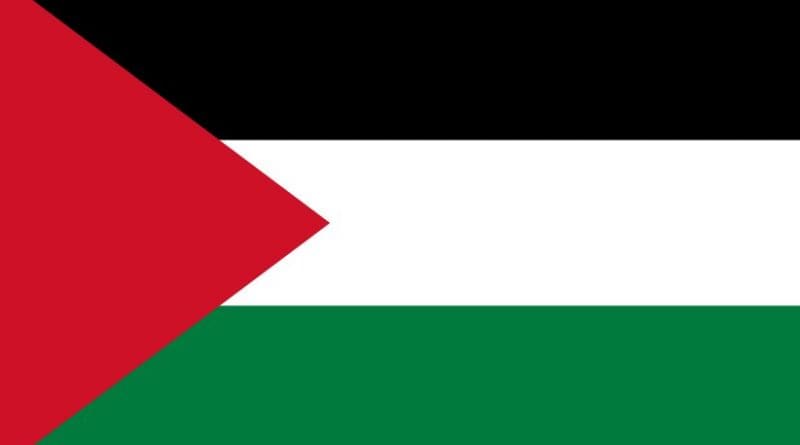A Day In The Life: ‘The King of Sous” – OpEd
By MIFTAH
By Melkam Lidet
One of the first things I noticed on my very first day in Ramallah was old and young men, walking around the main Manara square, wearing a flamboyant red and golden costume, carrying a golden flask on their backs and selling a dark brown liquid which at that brief moment I thought was coffee. My curiosity grew even more when I once approached one of them and asked for a cup of coffee and was disappointed to learn that what he was selling wasn’t coffee but kharub or carob juice. And that is when my curiosity peaked and i decided to profile this kharub seller (with translation help from a Palestinian friend).
We made our way down to the center of Ramallah and spotted the golden flask shining from the late afternoon sun. That’s how my friend and I met “Abu Samra”, one of Ramallah’s “Kings of Sous”. “King of Sous” is the general name given to the men who sell carob or almond juice in the street, wearing that fancy costume. He says he’s worked as a “king of sous” for about 10 years now without counting his childhood days when he used to accompany his father the “King Senior”. His father had taken it over the trade from his father who used to do the same thing in Damascus, before coming back to Palestine, Abu Samra says. The red shiny, polyester costume he wears is passed down from his grandfather, he tells me, very proudly. The fact that he is continuing the family legacy as a “King of Sous”, he says, is what he likes most about his job.
Originally from Jenin, Abu Samra now lives in Ramallah. He sells cold carob juice in the summer and fall months where the sun is hot or mild. But this is not a job one would do throughout the year. In the winter months, Abu Samra and his fellow “Kings of Sous” look for another job as the demand in the streets is for hot drinks. But in the summer, he says, business is good. People are always looking for a cold drink that could quench their thirst and cool them down. Even in the fall and spring seasons, sales are still high especially around the midday hours of 12-2:30, he tells me while serving many customers who are passing through al-Manara from a day of work or school.
But the streets of Ramallah are not the only place where his service and carob are sought. He and his brothers who also do the same thing sometimes get contracted to serve Arabic coffee and other drinks at private parties and weddings. That, he says, he can do throughout the year. The best days for Abu Samra, however, are festivals and events on the streets of Ramallah. There, he says, the atmosphere is festive and the demand for his carob juice very is high. When I asked him how Ramadan affects his sales when it’s observed during the summer months, he said “Oh, Ramadan is even better! I may not sell carob juice in a cup, wearing my costume, walking around the streets during the day, but people buy carob and almond juice in bottles for Iftar!”
For Abu Samra, his daily routine usually starts at 6am, where he gets up to prepare the carob he left soaking overnight and to get to the center of Ramallah by 9am. It usually takes him about two hours to prepare the drink. Although his flask can only take about 70-80 cups of carob, there are days where he goes back to his home to get more. “On most days, I sell 60-70 cups of carob but on very hot days, it might be about 300 cups” he tells me.
Thinking I would make this semi-professional and drink only once I finish with the interview, I observed as he poured out cups full of carob juice to his approaching customers. I was also confident that 80 cups a day is a lot and that he couldn’t possibly run out before I was done with all my questions. “It’s not even 6pm yet” I thought. Alas, it was only half way through our conversation when he began sending people away, that I realized my second misunderstanding about “king of sous” – his carob juice was very popular!
<em>Melkam Lidet is a Writer for the Media and Information Department at the Palestinian Initiative for the Promotion of Global Dialogue and Democracy (MIFTAH). She can be contacted at [email protected].

